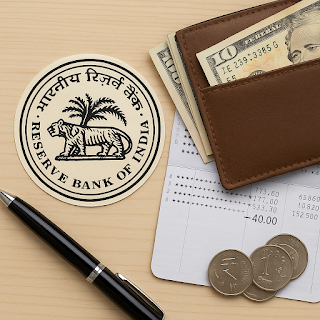Buying Property in 2025? Avoid These Common Mistakes at All Costs
Investing in real estate is one of the most important financial decisions a person can make. While buying gold and silver is traditional during festivals, an increasing number of people are also exploring property investment. Buying a home, flat, or land can be financially rewarding, but it comes with its share of risks. With careful planning and research, you can protect your money and even earn significant returns in the future.
This article provides a practical guide for buyers who want to make smart property decisions during the festive season.
1. Confirm Property Ownership
Before signing any agreement, always verify that the seller is the legitimate owner of the property.
Key steps to check ownership:
-
Review the Sale Deed and Title Documents.
-
Confirm there are no pending legal disputes or claims on the property.
-
Consult a real estate lawyer for legal verification.
Owning a legally verified property ensures your investment is safe and secure.
2. Check Land Zoning and Purpose
Not all land can be used for construction. India classifies land into residential, commercial, industrial, and agricultural zones.
Important considerations:
-
Verify the land’s zoning status with the local municipal office.
-
Ensure the property is suitable for your intended purpose.
Ignoring zoning rules can delay construction and create legal issues.
3. Location Matters
A property’s location affects both your quality of life and its future value.
Location checklist:
-
Proximity to schools, hospitals, markets, and transport hubs.
-
Accessibility via roads, metro, or public transport.
-
Upcoming infrastructure or development projects that could raise property value.
Investing in a well-connected and developing area ensures long-term benefits.
4. Availability of Basic Amenities
A property without essential facilities like electricity, water, and drainage can be inconvenient and reduce its value.
Ensure:
-
Reliable electricity and water supply.
-
Functional sewage and drainage systems.
-
Nearby access to daily needs and community facilities.
Properties with proper amenities are more livable and maintain their market value.
5. Understand Pricing and Potential Appreciation
Do not rely solely on the seller’s word when evaluating price.
Tips for price evaluation:
-
Compare with similar properties in the neighborhood.
-
Check government-approved rates.
-
Consider areas with upcoming infrastructure projects like malls, highways, or metro lines.
Smart pricing analysis helps you make a profitable investment.
6. Investigate Legal Issues
Land disputes are common, so ensure the property has no legal complications.
Steps:
-
Check for ongoing court cases.
-
Verify the property is free from family disputes or claims.
-
Ensure there are no outstanding loans or mortgages.
Visit the local courts or tehsil office to verify legal clearance.
7. Verify Plot Measurements
Discrepancies between documented and actual land measurements can lead to disputes.
Checklist:
-
Conduct a land survey.
-
Cross-check dimensions with government records or GPS data.
-
Confirm the plot is part of an approved layout plan.
Accurate measurements prevent conflicts and ensure smooth construction.
8. Assess Soil Quality and Environmental Risks
The safety and durability of your property depend on the land’s natural characteristics.
Consider:
-
Conduct a soil test before construction.
-
Avoid flood-prone or landslide-prone areas.
-
Check earthquake zone classification.
This ensures your property is safe for long-term habitation.
9. Taxes and Government Approvals
Understanding all taxes and approvals is crucial.
Key points:
-
Verify property tax records and pending dues.
-
Ensure necessary municipal approvals for construction.
-
Confirm any future development charges or levies.
Clearing all approvals avoids unexpected expenses later.
10. Evaluate the Neighborhood
A property’s value also depends on the community and surroundings.
Consider:
-
Safety and security of the area.
-
Noise levels and pollution.
-
Planned developments in the locality.
A well-maintained neighborhood enhances both your living experience and resale value.
11. Consider Resale Potential
Even if you plan to live long-term, resale value is important.
Tips:
-
Buy in emerging areas with high growth potential.
-
Avoid properties near industrial zones or noisy locations.
-
Ensure good connectivity and amenities.
A property with good resale potential offers better long-term financial security.
12. Consult Professionals
Real estate involves legal, financial, and technical aspects. Professional guidance minimizes risks.
Who to consult:
-
Property lawyers for legal verification.
-
Real estate agents for market trends.
-
Civil engineers/architects for construction feasibility.
Experts provide reliable guidance, saving both time and money.
13. Timing Your Purchase
Festive seasons are popular for property purchases due to cultural beliefs and attractive offers. However, timing should align with your financial readiness.
Tips:
-
Avoid impulsive purchases based on festival hype.
-
Ensure adequate funds or loan approvals.
-
Evaluate developer discounts carefully.
Right timing ensures better deals and smoother transactions.
14. Future Expansion and Amenities
If buying land for future construction, consider expansion possibilities.
Checklist:
-
Space for additional rooms or structures.
-
Availability of future utilities like broadband, gas, and sewage.
-
Compliance with local development plans and zoning laws.
Planning ahead ensures your property remains functional and valuable.
15. Maintain Proper Documentation
Always keep a record of every transaction step.
Essential documents:
-
Sale deed, ownership proof, and property tax receipts.
-
Receipts for all payments.
-
Approved plans and agreements with developers or sellers.
Proper documentation protects your legal rights and ensures smooth ownership transfer.
Conclusion
Buying property during the festive season can be rewarding if approached carefully. By following this checklist, you can avoid common pitfalls, ensure legal security, and make a smart investment that appreciates over time.
A little diligence before signing a deal can save you from significant stress and financial loss. Verify details, consult professionals, and invest wisely. With proper planning, your property can become both a comfortable home and a valuable financial asset.





Comments
Post a Comment